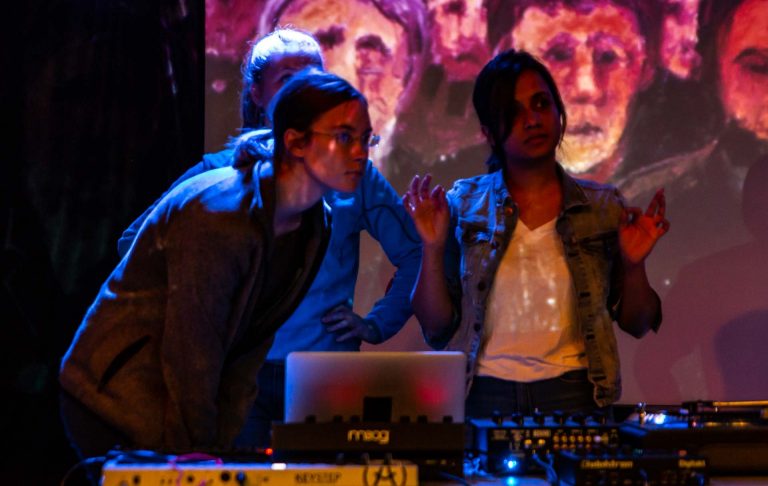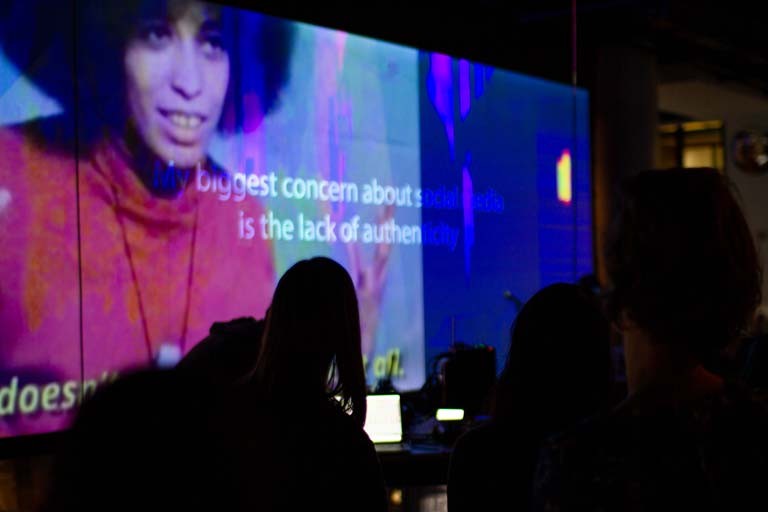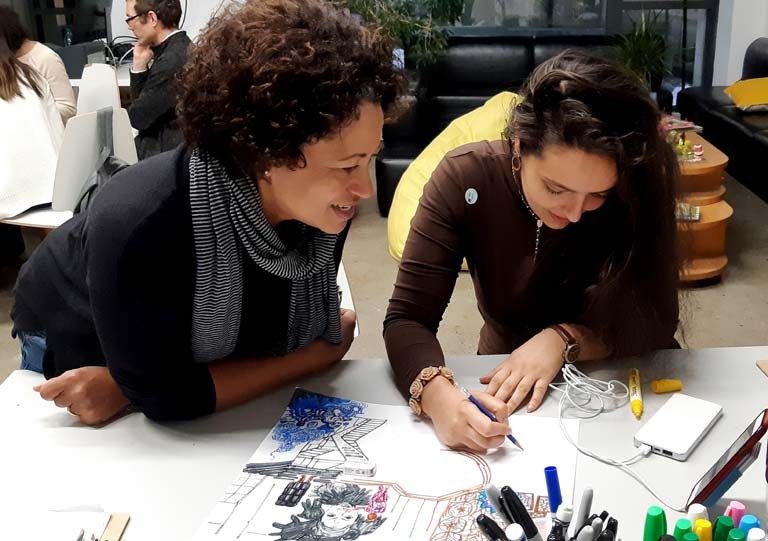Concordia-based Centre for the Study of Learning and Performance receives $1.8M award

Concordia’s Centre for the Study of Learning and Performance (CSLP) will receive $1.8 million from the Government of Quebec over the next seven years. The funds have been awarded by the Fonds de recherche du Québec – Société et culture (FRQSC), one of the most reputable research funding institutions in the province.
The group received the Regroupements stratégiques infrastructure grant, intended to allow organizations to coordinate the efforts of interdisciplinary research groups.
 Landscape of Hope Canadian premiere in 2019 at 4TH Space | Photo by Grace Mendenhall and Émilie Trudeau
Landscape of Hope Canadian premiere in 2019 at 4TH Space | Photo by Grace Mendenhall and Émilie Trudeau
The CSLP’s mission
The CSLP aims to have a positive social impact through research on teaching and learning processes, working especially to develop educational tools and strategies. Pursuing these goals, the centre carries out research at the intersection of cognitive science, instructional design, educational technologies and social pedagogy.
“Among other things, we are devoted to helping answer pressing questions about how to best prepare teachers to tackle sensitive issues in the classroom,” explains Vivek Venkatesh, director of the CSLP.
Venkatesh is a professor of inclusive practices in visual arts in Concordia’s Department of Art Education. He is also a UNESCO Co-Chair in the Prevention of Radicalisation and Violent Extremism.
“We want to figure out how to ensure that minority communities’ voices are best represented in times of public crises. We also want to create opportunities for the public to shape our research agendas.”
Together, the funding co-applicants form a cohort of 38 researchers from several Quebec research institutions. Collaborators will also include more than a dozen professional staff and several hundred students.
In their activities, the group will collaborate with community organizations, NGOs, school boards, policy-making bodies and mental and social health service providers, as well as public safety organizations.
The first major axis of the centre’s focus concerns curriculum and didactic pedagogy. They investigate how curricula should be structured and how, in teaching, one can draw upon learners’ existing experiences and knowledge.
“This part of our research focuses on intellectual and affective dimensions of learning,” Venkatesh says. “What do learners actually experience? How do they acquire knowledge? What are the outcomes of their learning?”
The second axis of the CSLP’s research is more technical, focusing on tools and learning platforms for literacy, numeracy, scientific knowledge and digital literacy.
The CSLP has several recent and ongoing projects. One is investigating how information and communication technology can be employed for postsecondary students with disabilities.
Another monitors how the use of ABRACADABRA and other web-based tools has helped with the development of literacy and numeracy skills in Kenyan primary school classes.
Another research group investigates online hate speech and violent extremism with the objective of building community resilience and sustainable prevention models in pedagogical contexts.
David Waddington, professor of education in the Faculty of Arts and Science and CSLP associate director, emphasizes the impact of the centre’s work.
“Our members are not only making waves in academic circles but we are also now key members of policy-making bodies nationally and internationally — at UNESCO in Paris, and with key federal and provincial government partners in Canada,” he says.
“Our research-creation experts have been performing at internationally renowned festivals. They have been creating multimedia installations with youth participants and showcasing their provocative art across North America, Europe, the Middle East and North Africa,” Waddington adds.
“Our literacy and numeracy software tools are being deployed in China and Kenya, with newer projects being established in Rwanda and Bangladesh.”
 Landscape of Hope: Remixing the Montreal Museum of Fine Arts in 2019 | Photo by Kathryn Urbaniak
Landscape of Hope: Remixing the Montreal Museum of Fine Arts in 2019 | Photo by Kathryn Urbaniak
Ongoing plans
“The funding is a vote of confidence from one of the most prestigious research institutions in Quebec — the FRQSC. We are humbled, honoured and energized by this tremendous show of support from our peers,” says Venkatesh.
He adds that the centre has evolved extensively over the past two years.
“With this new phase of our development, we’re building on our flagship and cornerstone strengths in educational technology. However, we’re also developing new collaborative and interdisciplinary work that will draw on the expertise of our colleagues in public health, philosophy, sociology, religion, research-creation and public pedagogy,” Venkatesh says.
“And we are working with documentary filmmakers and community-led research groups. We’re looking forward to their insight helping us respond better than ever to human rights and social issues.”
The two researchers also make note of their plans for new scholarly events.
“Isabelle Gauvin, our UQAM colleague and co-applicant, has held well-attended symposia each of the last two years. With this funding, we hope we can build on that success. In particular, we want to connect the CSLP to researchers across North America and continue to be a leading centre of innovative, interdisciplinary, educational expertise,” Waddington says.
“We are excited to expand our national and international reach. We want to enable CSLP researchers from multiple institutions and diverse disciplines to substantively collaborate with one another” he says.
“With this funding, we want to help develop sustainable relationships with policy-makers in education, public safety, public health, international development and social services. We’re excited to continue to lead in these important research projects.”
Find out more about Concordia’s Centre for the Study of Learning and Performance.



